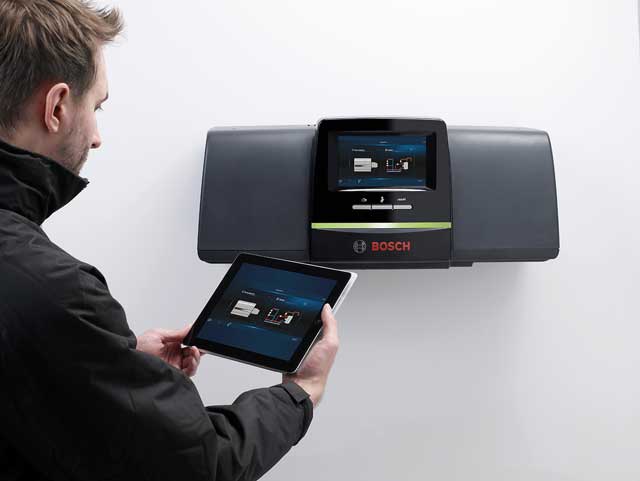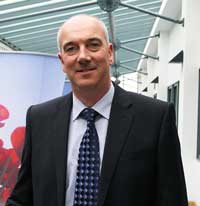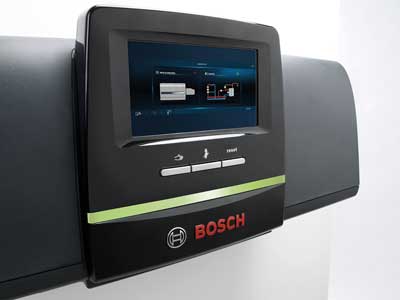
Fitting boilers with smart heating controls will be an important innovation on the path to net zero emissions by 2050, says Pete Mills, technical operations manager for Bosch Commercial & Industrial

One of the biggest announcements of last year was the Government’s new target of net zero carbon emissions by 2050. This may seem a good way off, but plans are already being put in place. Industry standards and UK legislation are already being updated and introduced for the essential but ambitious target.
The way the UK heats its properties and hot water has been identified as one of the biggest challenges in decarbonising the UK. About 30% of carbon emissions come from heating homes and commercial and industrial buildings.
The headlines so far have focused on new build homes. However, commercial and industrial buildings will be harder to tackle. This is where future technology will play a vital part – with one of the key assets being smart control.
Here are some ways that using smart controls on boilers can help with the decarbonisation of heating and hot water.
Retaining efficiency
It may seem obvious, but it is more important than ever to make sure the energy efficiency of a boiler system is a central aspect of facilities management.
Smart controls will definitely play a part in this. Being able to control and monitor a heating system – in some cases remotely – means that problems or anomalies can be identified early on. Through doing so any potential problems can be resolved and the building’s efficiency levels can remain at a high level.
Controls such as Bosch Commercial & Industrial’s Control 8311 are already bringing down the cost of remote access control systems and helping speed up the pace of change. It’s not always necessary to have expensive bespoke control systems tailored to the site boiler room. For the vast majority of practical use, a more standardised control solution could provide 80% to 90% of the information and control needed for a boiler system at a fraction of the cost.
By making sure a boiler is as efficient as possible and that only the required amount of heat is generated through good control can go a long way to reducing wasted energy.
Lowering indirect carbon emissions
A bulding will produce a certain level of carbon emissions directly, and controls will help monitor this. However, there is a level of carbon produced indirectly through building management and boiler servicing, for example via transport.
Although smart controls won’t be able to estimate or monitor the level of emissions that would be produced from a delivery or an engineer’s site visit, they could help cut down the number of visits to the site.

One example would be using the remote diagnostic and predictive maintenance capabilities from smart controls. This could help prevent unnecessary callouts of heating engineers and indirectly reduce carbon emissions from vehicles. The newly updated Control 8311 can connect directly to a building’s boiler systems and gives users the ability to monitor, control and receive clear alerts to plant rooms from anywhere in the world – without the need to send an engineer.
Taking control
As smart control technology continues to evolve over the coming years, boiler controls will become more and more intelligent, transparent and accessible. This will ultimately lead to them contributing to the overall aim of reducing carbon emissions from buildings across the whole country.
For more information visit:
www.bosch-thermotechnology.com/gb/en/ocs/commercial-industrial/controls-and-connectivity-669567-c/

